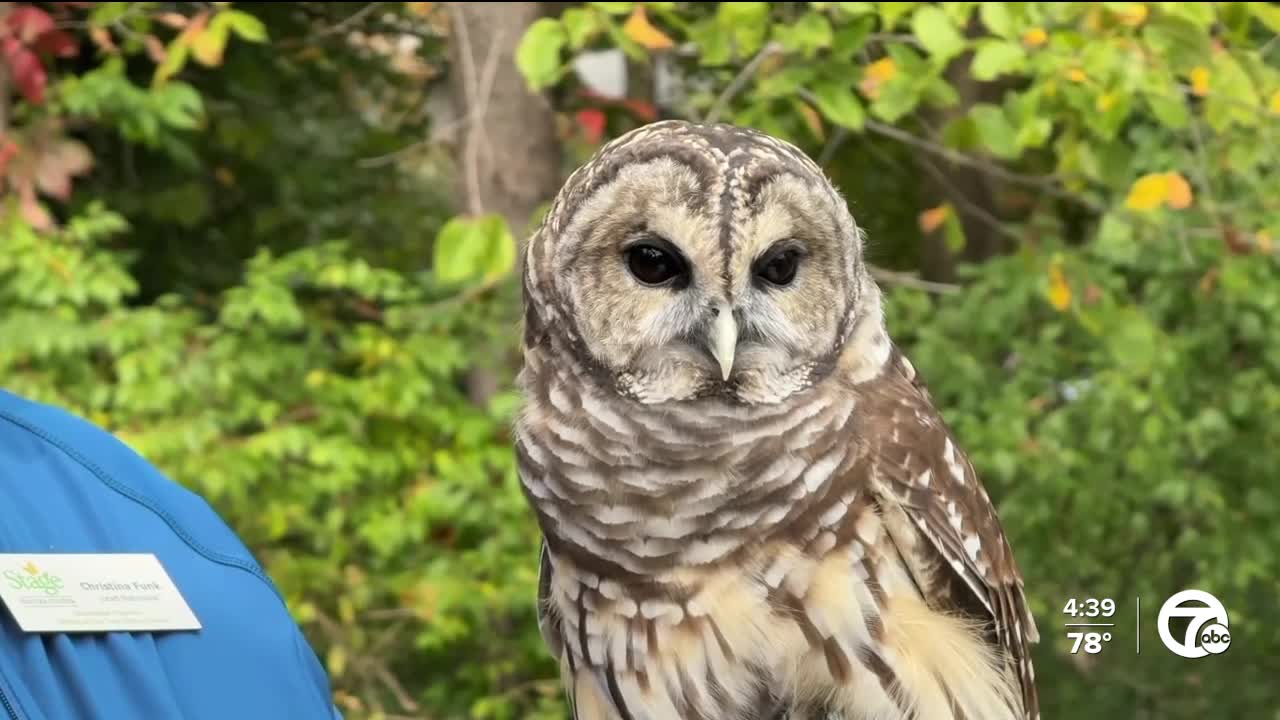TROY, Mich. (WXYZ) — Michigan is home to several species of owls, but their future depends on having the right habitats. From old trees with nesting cavities to quiet wooded areas, experts say these raptors rely on spaces that are disappearing across the state.
Watch Meghan's full package in the video player below:
The Troy Nature Center is educating visitors about why protecting owl habitats is crucial to our ecosystem through hands-on encounters with rescued owls.
When you walk through the trails at the Troy Nature Center, you might not expect to come face-to-face with a great horned or screech owl. But staff say these raptors aren't just crowd-pleasers—they're teaching visitors why owls are so important to Michigan's ecosystem.

"This is Rito. He is an eastern screech owl, and this is one of the most common species that you're going to see living around your neighborhoods," said Christina Funk, lead naturalist for the Stage Nature Center in Troy.
Rito and his fellow owl Sam each have their own story.
"Sam was rescued when she was a baby. She was a nestling. She had fallen out of the nest and been attacked by a dog," Funk said.
"She's what we call an imprint, which means that she relates more to other people than they do their own species," Funk said.
The center uses these raptors as ambassadors to explain to visitors the crucial role owls play in the environment.

"Mice are a pretty good meal for them," Funk said.
"They can also eat little types of bugs ... out in the wild, they'll eat little insects, sometimes things like moths, beetles," Funk said.
But while they're good hunters, the biggest threat to their survival isn't prey—it's people.
"Screech owls like to have their nests inside of cavities and trees. And if we're cutting down those kind of trees, especially since those are oftentimes the trees that don't look as nice, then they're losing their homes and they don't have a place to nest," Funk said.
An even bigger danger is rat poison. Funk says there are safer ways we can keep rodent populations in check.
"Putting up a screech owl house is a great thing to do because if you attract screech owls, they will eat the rodents," Funk said.
This story was reported on-air by a journalist and has been converted to this platform with the assistance of AI. Our editorial team verifies all reporting on all platforms for fairness and accuracy.



